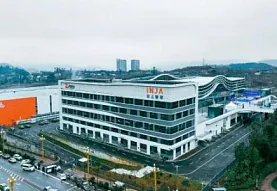The International Institute of Refrigeration (IIR) actively participated in COP29, held in Baku, Azerbaijan, from November 11-22, 2024, underscoring the importance of refrigeration and heat pump technologies in achieving global climate goals.
During the summit, where significant discussions addressed the climate crisis, developed nations pledged $300 billion annually by 2035 to support developing countries - an amount falling short of the $1.3 trillion requested. Progress on fossil fuel transition remained slow due to resistance, but agreements on carbon markets provided some advancements.
The IIR contributed to critical discussions, highlighting sustainable refrigeration technologies, low-GWP refrigerants, and the Kigali Implementation Plan for hydrofluorocarbon (HFC) reductions under the Montreal Protocol. Marco Duran, Head of IIR Policy and Global Partnerships, participated in various sessions, ensuring refrigeration’s role was recognized as integral to sustainable development and climate action.
Notably, IIR representatives attended the World Leaders Climate Action Summit and the Summit on Methane and Non-CO₂ Greenhouse Gases, which addressed HFCs as key contributors to global emissions. Marco Duran also delivered a keynote at a side event titled “Cooling the Heat: Enhancing Efficiency of the Refrigeration and Cooling Sector,” emphasizing energy efficiency in cooling technologies and strengthening global cold chains.
In collaboration with Alliance for an Energy Efficient Economy (AEEE), CLASP, and SEforALL, the IIR organized the side event “Tracking Efficiency Progress in the Global South” on November 15. The session highlighted the importance of accurate tracking systems to align national energy efficiency targets with global commitments, with case studies presented by experts from Brazil, Nigeria, and the UK.
The IIR also contributed to discussions at the Global Cooling Pledge Working Meeting, identifying priorities such as baseline data collection, tracking progress, and enhancing financial access to support cooling-related targets.
During the second week, IIR Director General Yosr Allouche participated in sessions focused on sustainable energy partnerships, equitable research collaboration, and passive cooling strategies. Moderating the event “Financing the Adoption of Passive Cooling Strategies for a Cooler Future,” Allouche highlighted passive cooling’s potential to curb energy demand and reduce climate impacts.
At COP29’s high-level segment, Yosr Allouche delivered the IIR’s statement, stressing the indispensable role of refrigeration, heat pumps, and cold chains in food security, health protection, and economic stability. She emphasized the need for clean, energy-efficient solutions to address growing energy demands, particularly in the face of rising extreme heat events.
The IIR reaffirmed its commitment to raising awareness about refrigeration’s role in climate action and supporting policymakers with scientific insights to inform effective solutions. Moving forward, the IIR aims to intensify collaboration with UN agencies and global partners to promote sustainable refrigeration and heat pump technologies as critical tools for achieving global climate targets.


